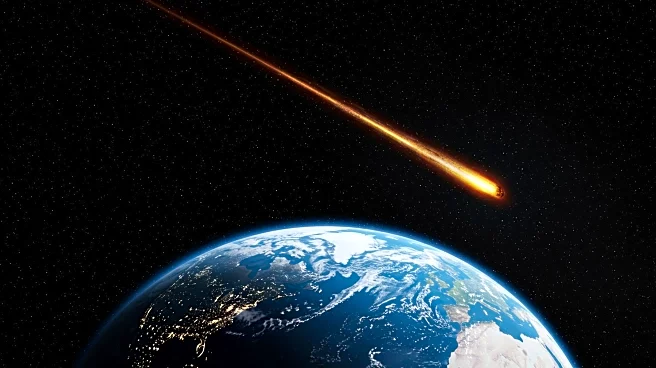What's Happening?
A recent study published in PLOS One has reignited the debate over the Younger Dryas cool period, suggesting that a comet impact may have triggered the abrupt climate shift 12,800 years ago. Researchers found evidence of cosmic materials in sediment cores from Baffin Bay, Greenland, supporting the controversial Younger Dryas Impact Hypothesis. This hypothesis posits that a comet explosion in Earth's atmosphere destabilized ice sheets, leading to significant climate changes. While the Meltwater Pulse Hypothesis remains widely accepted, the new findings challenge previous theories and raise questions about Earth's climatic history.
Why It's Important?
Understanding the causes of ancient climate shifts is crucial for predicting future climate scenarios. The study's findings could reshape scientific perspectives on climate change, emphasizing the role of cosmic events in Earth's climatic history. If the Younger Dryas Impact Hypothesis gains acceptance, it may influence research priorities and funding in climate science. Additionally, the study highlights the importance of technological advancements in uncovering evidence from Earth's past, which can inform strategies for addressing contemporary climate challenges.









